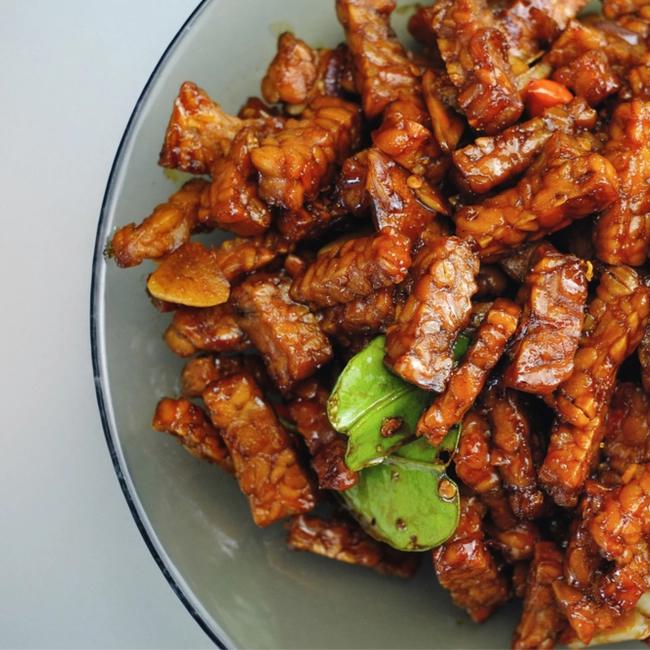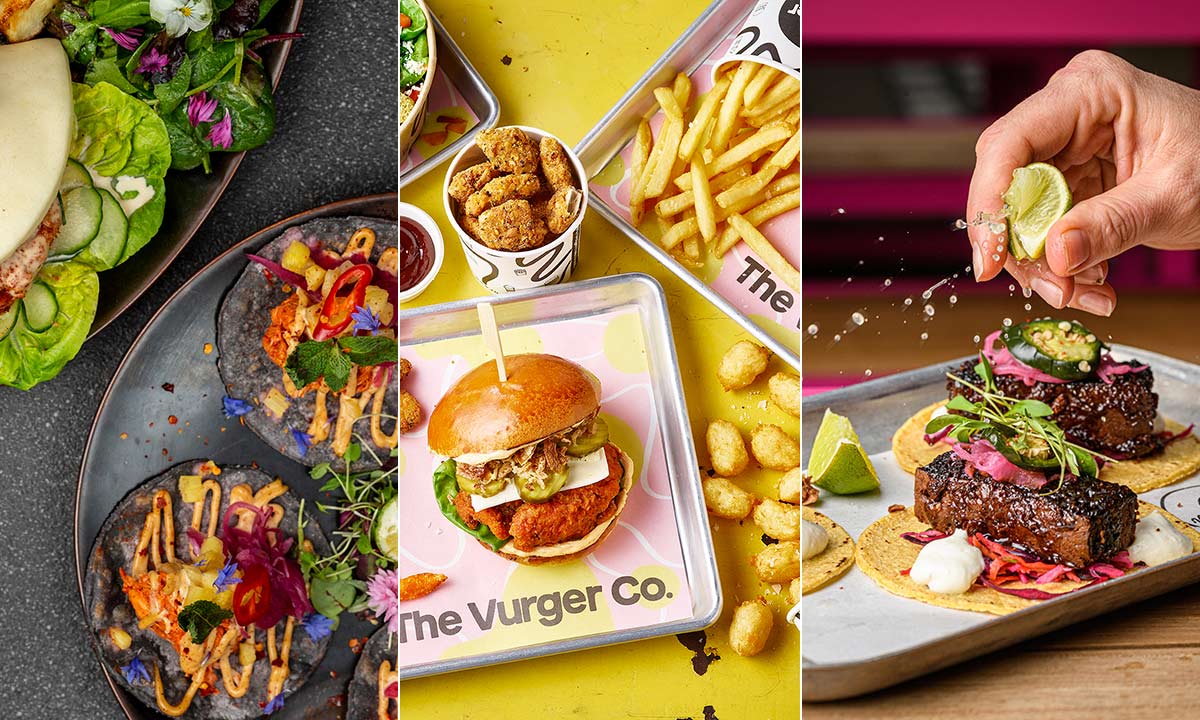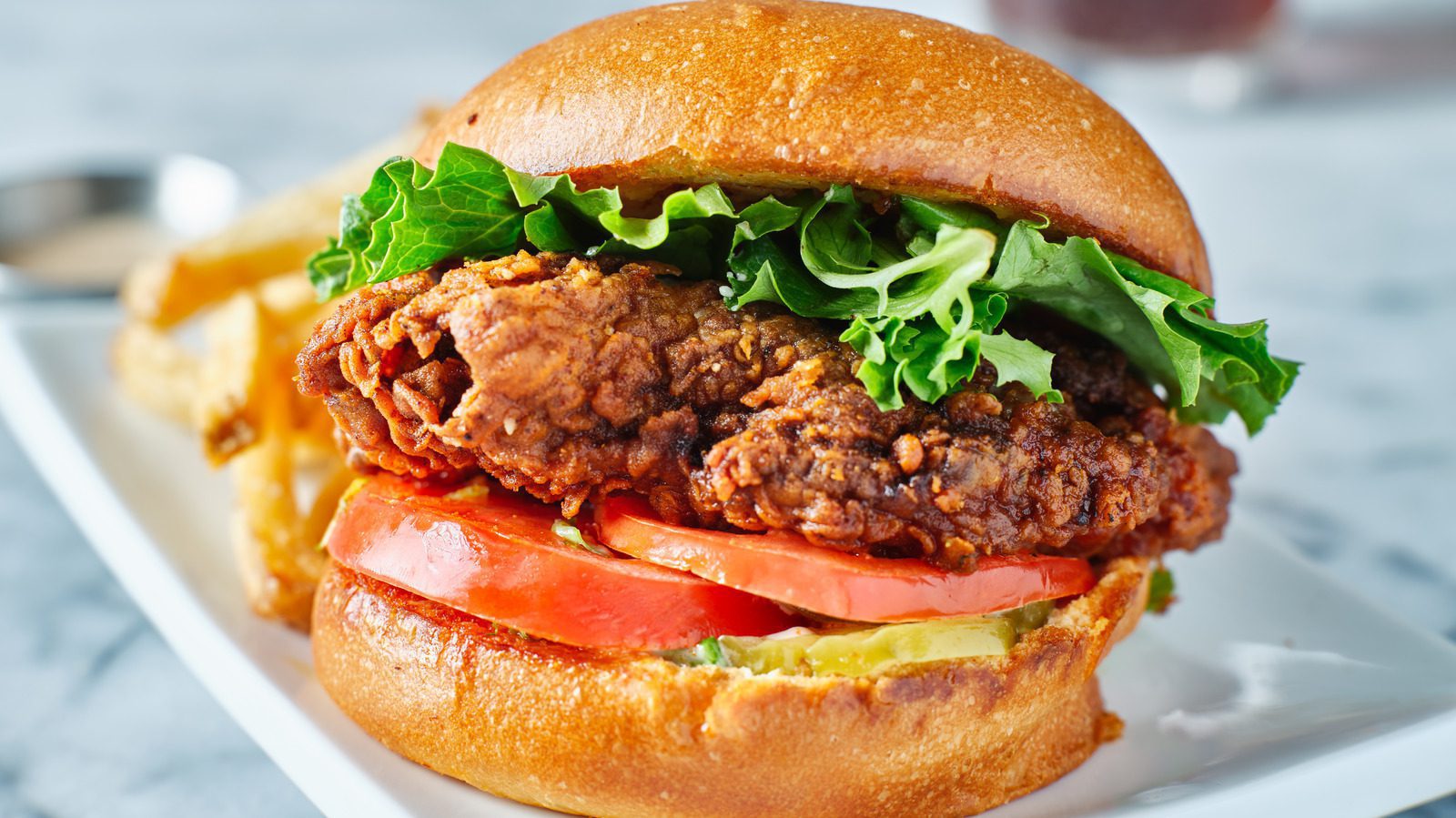While 71 percent of Americans have tried plant-based food, there remains a lack of access and education surrounding healthier eating. Approximately 10 percent of American households faced food insecurity in 2020, and now, a plant-based solution from Chef Dustin Harder – the culinary specialist for the Physicians Committee For Responsible Medicine (PCRM) and the host of a cooking show The Vegan Roadie – is seeking to solve this accessibility deficit.
This fall, Harder and PCRM will launch its Universal Meals tour, aiming to provide healthy eating tips to prisons, schools, and hospitals. The tour intends to highlight the benefits of plant-based foods while improving Americans’ understanding of how vegan eating can help the environment, their health, and more.
The tour will begin on October 4, visiting North Carolina State University before traveling to the University of Miami in Miami, FL; Georgia State College and Emory University Hospital in Atlanta, GA; Washington State University in Pullman, WA; and Notre Dame University in South Bend, IN. Harder and co-hosts will hold dining hall pop-ups complete with taste testings, mini-seminars, and recipe instructions. Currently, the program costs participating institutions nothing.
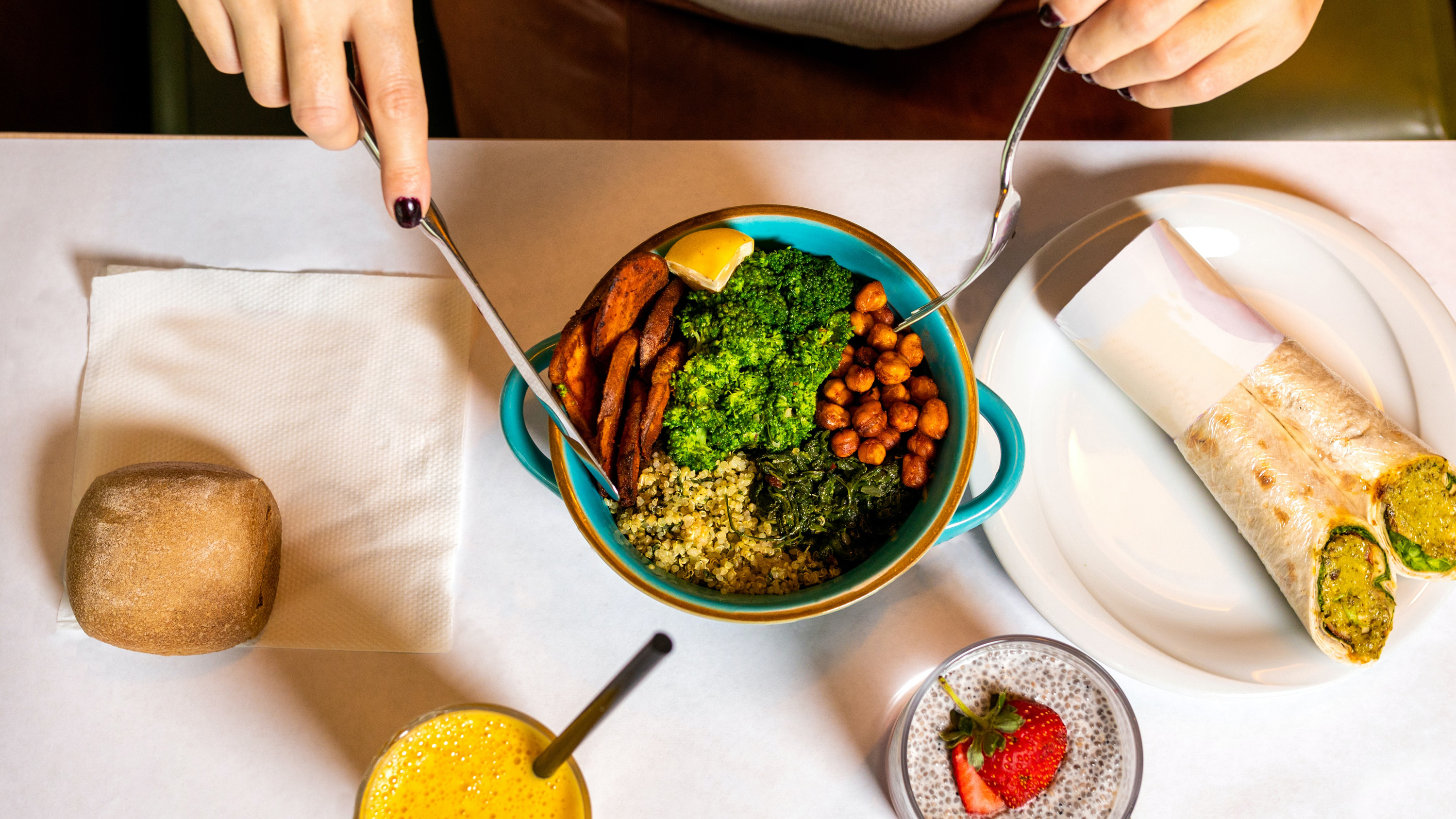
“I was inspired to work with PCRM on Universal Meals because of their commitment with this program to create a seat for everyone at the table,” Harder told VegNews. “The recipes streamline production for institutions, including recipes that are cost-effective, easy to produce, and most importantly, delicious.”
Expanding the Vegan Meal Program
The Universal Meal program distinguishes itself from other plant-based initiatives by cutting out the top nine allergens from its recipe instruction, including milk, eggs, wheat, sesame, tree nuts, soy, fish, shellfish, peanuts, gluten-containing grains, animal-derived ingredients, and alcohol. Harder hopes that this program will provide consumers with a foundation for healthy, adaptable eating.
This week, the chef also introduced the International Conference in Medicine in Washington, DC. The conference highlighted how this meal program is beneficial to thousands of Americans looking to eat healthier and more sustainably. Harder was joined by Chef David Kamen from the Culinary Institute of America and registered dietician Lillian Correa from New York Health and Hospitals.
The program features recipes from DC Vegan Catering, Culinary Institute of America, Spork Foods, and Harder himself. The fall tour will feature recipes including Cauliflower and Chickpea Masala, Spinach Artichoke Flatbread, and Mac and Cheese with Presto Pesto and Shiitake Bacon. Following the fall tour, Harder hopes to see the program become incorporated into more high-volume businesses and institutions.

“My hope for the future is that institutions that serve high volumes start to navigate from a place of empathy for those living with food allergies and that diners will be able to order food with trust in how it is prepared,” Harder says. “I would love to see Universal Meals offered far and wide in hospitals, universities, airports, prisons, and even restaurants.”
Increase of Plant-Based Educational Programs
Last November, Wayne State University announced that its School of Medicine will introduce a plant-based nutrition requirement in its future curriculum. This university became the first higher education institution to ask future doctors to study the health benefits of plant-based nutrition. The Detroit-based university revealed that studies revealed substantial proof that whole food plant-based diets present significant health benefits.
“Advances in preventive medicine have demonstrated the crucial role of whole-food unprocessed plant-based nutrition in reducing disease burden,” the statement reads. “Nutrition education and plant-based nutrition are seldom included in medical curriculum and are thus seldom incorporated into clinical care. Additionally, personal exposure to lifestyle modifications, including nutrition and diet, is associated with a provider’s willingness to recommend lifestyle modifications in clinical encounters.”

In the culinary world, vegan cooking is gaining recognition for the first time. Last October, Le Cordon Bleu – one of the world’s top culinary schools – announced a plant-based pastry course. The class teaches students how to bake without common baking ingredients including butter, eggs, and milk.
Introducing Vegan Options to Hospitals
Hospitals worldwide have started acknowledging the importance of healthy, plant-based eating for patients. Last March, Hayek Hospital in Beirut, Lebanon became the first hospital in the world to serve only plant-based meals. The hospital revealed that it realized that the meat and dairy food offerings caused many of its patients’ health problems in the first place.
“Our patients will no longer wake up from surgery to be greeted with ham, cheese, milk, the very food[s] that may have contributed to their health problems in the first place,” Hayek Hospital wrote in an Instagram post.
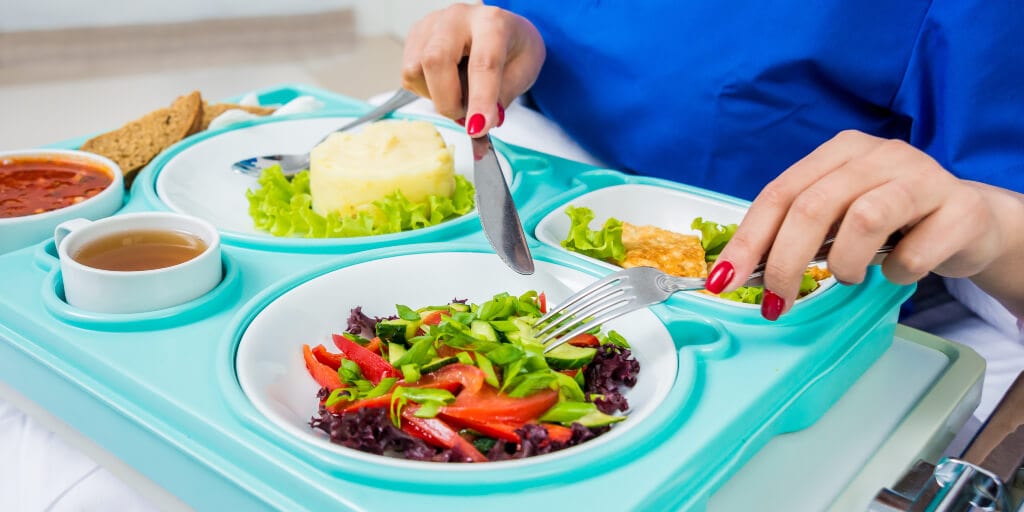
Within the United States, PCRM is campaigning to introduce healthier options in hospitals. The organization’s registered dietitians, nurses, and medical doctors host lunch-and-learn and employee wellness programs to promote plant-based eating and nutrition.





